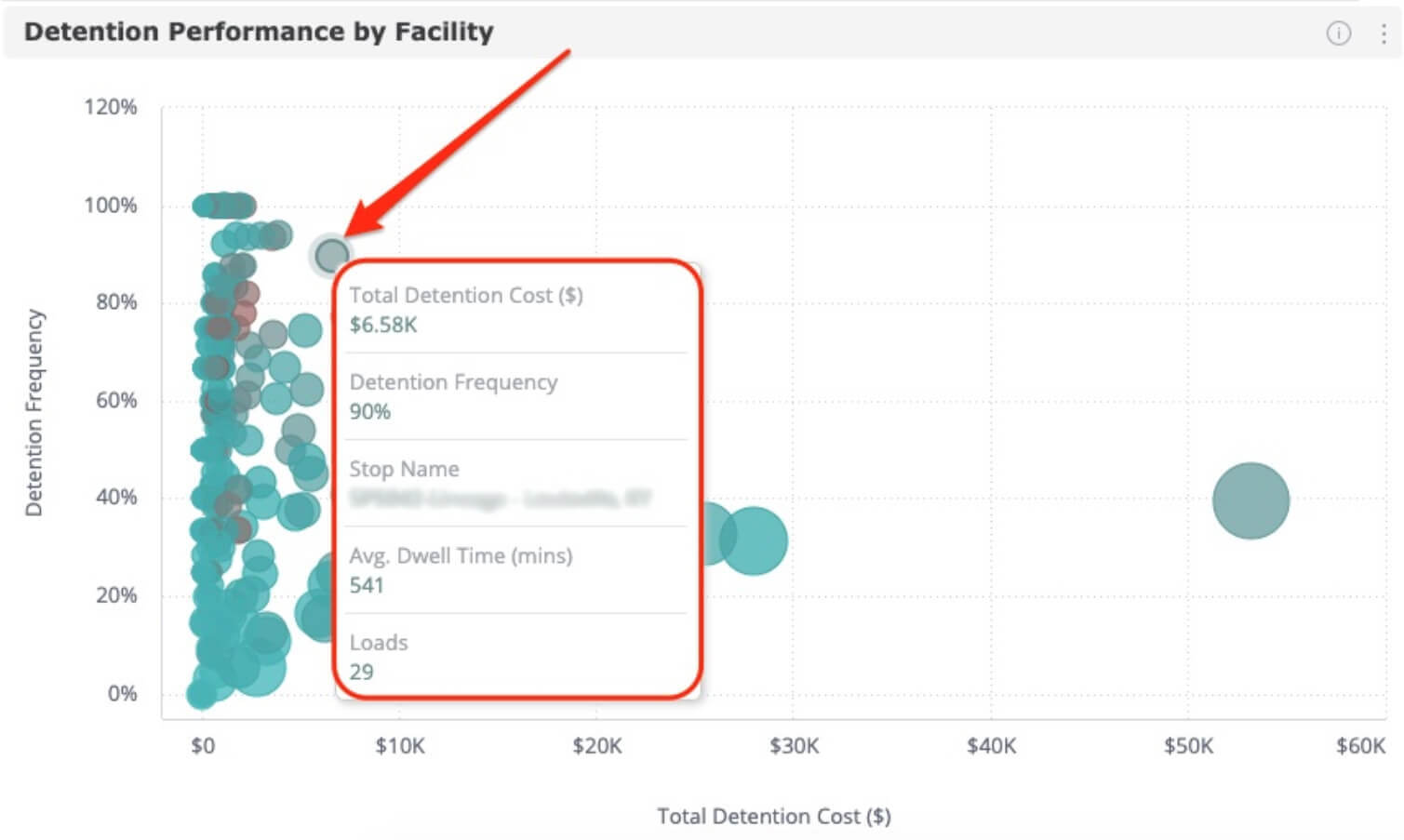
In the supply chain industry, detention is typically defined as the time a truck driver spends waiting at a pickup or delivery facility, rather than getting loaded or unloaded and back on the road. It can also refer to the charges or detention fees carriers impose upon shippers for unreasonably long wait times, usually exceeding two hours spent sitting at the facility.
Detention time is detrimental to all parties involved. For carriers, it reduces the number of drivable hours the driver can bill for in a given day, and it diminishes revenue potential within the carrier’s operation. For shippers, detention impacts logistics such as on-time delivery rates, slows down dock and warehouse operations, increases the risk of empty shelves and manufacturing delays at the consignee, and frequently gives rise to extra fees the shipper needs to pay the carrier for wasted time.
In fact, according to the American Transportation Research Institute (ATRI), truck drivers estimate that nearly half of their appointments are delayed due to actions taken by the customer or the customer’s facility staff.
Learn more about the ROI of Real-Time Transportation Visibility ›
Reducing detention time and fees is one of the best ways to drive waste out of the supply chain and improve profitability for all stakeholders. However, especially for larger supply chains with lots of moving parts, doing so is often much easier said than done.
Long detention times in trucking are typically the product of many different variables interacting simultaneously throughout the supply chain. In other words, one small delay after another can cause a snowball effect of major delays further down the chain. To reduce the detention times, facilities must address the underlying logistical causes of the delays directly.
Reducing the factors that contribute to detention time is a lot easier said than done. Especially since different operations will have different pain points. Real-Time detention performance data gives you the ability to see into areas of inefficiency and is critical to making a meaningful impact on high detention times.

“Our overall detention has probably been down at least 20% per month over the last eight months, which has been a very critical factor. Becoming a shipper of choice and reducing your dwell time is huge in this tight market. You want to be able to attract carriers, not to push them away.”
— Brad Shockey | Director, Supply Chain | Pixelle Specialty Solutions
It’s not just that detention time is wasteful in its own right. It also negatively impacts other adjacent supply chain operations, such as the amount of available capacity throughout the industry as a whole. In a study with McKinsey, FMI and others, FourKites discovered that reducing detention time throughout supply chain logistics can generate an additional 2-4% of freight capacity throughout the industry.
The supply chain industry needs a solution to detention time in trucking and logistics that doesn’t just push the problem back on either the shipper or the carrier, but rather eliminates it for good. In an exclusive interview with FourKites VP Glenn Koepke, Bill Cassidy of the Journal of Commerce concluded that new real-time visibility technology will likely form the backbone of that transformation.
As the COVID crisis has demonstrated, supply chains are incredibly resilient and capable of adjusting to even the harshest of circumstances. By providing logistics professionals with the data and tools they need to improve processes, you will reap tangible value across your end-to-end supply chain.